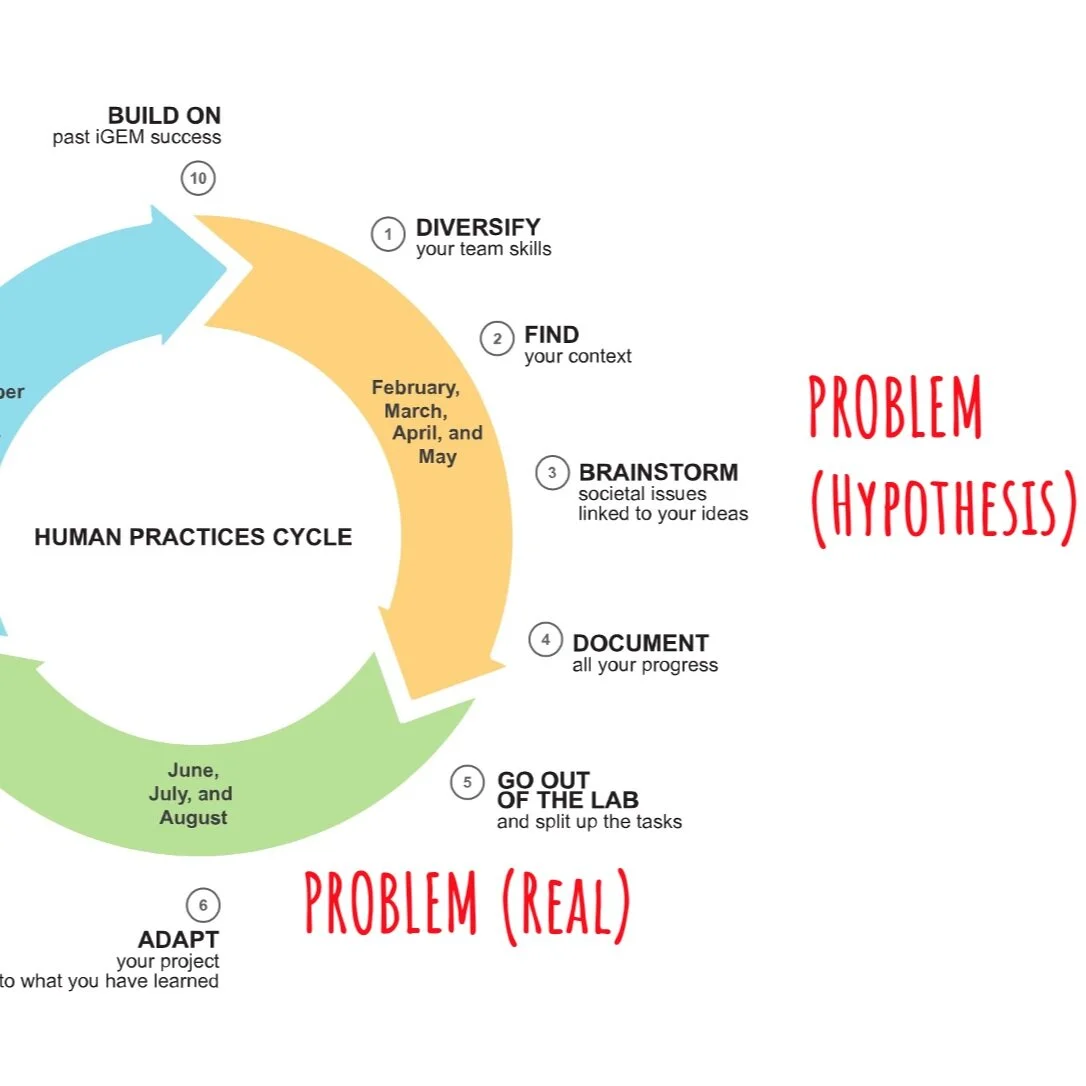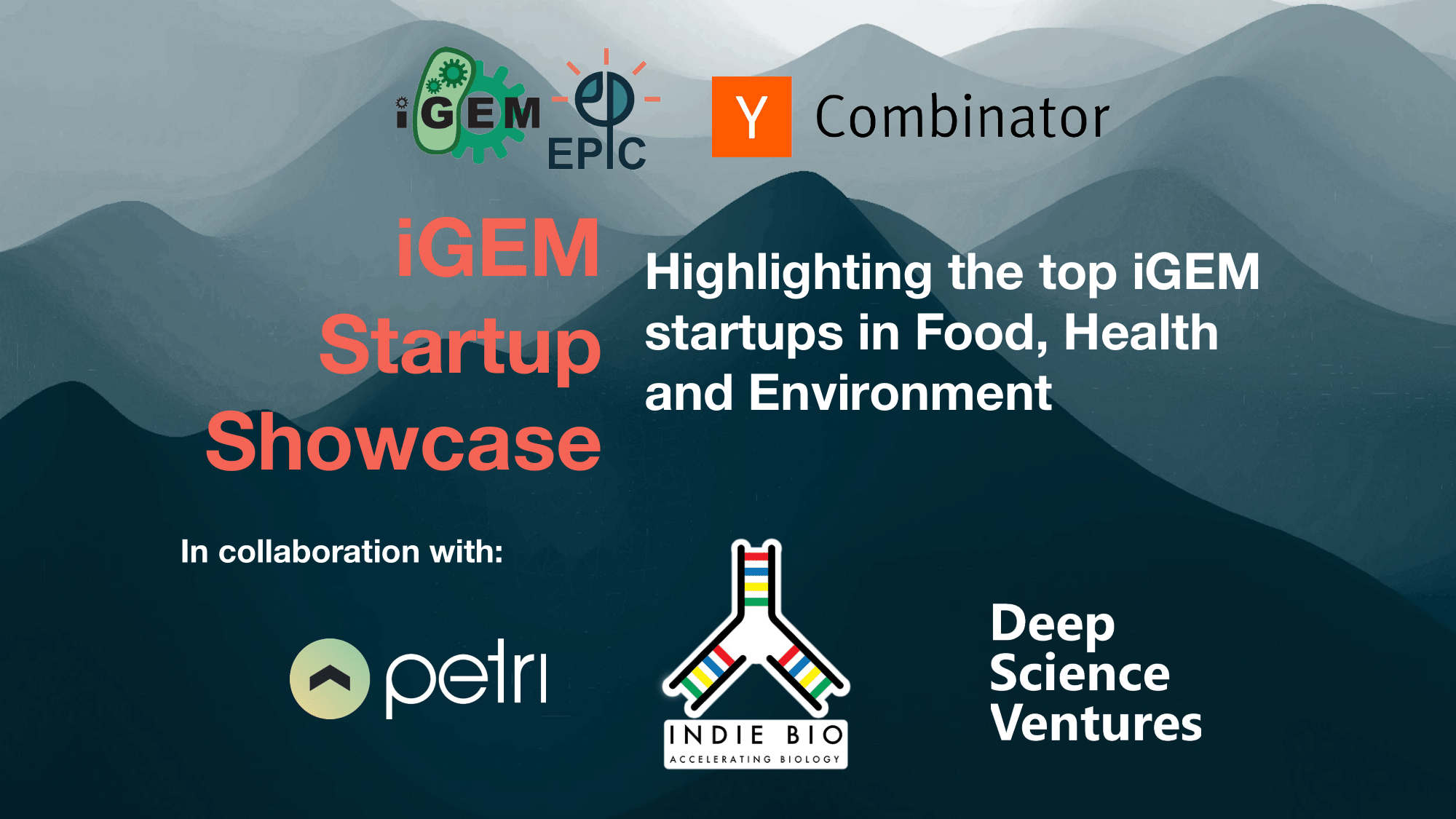Exploring the Asia Pacific SynBio Ecosystem
Synthetic Biology (SynBio) is a field that has global involvement and impact. However, differences between regions necessitate a better understanding of individual nuances to enable the fullest potential of SynBio. To highlight these regional differences, EPIC in Asia-Pacific (APAC) hosted a panel discussion titled 'Exploring Asia-Pacific SynBio Ecosystem', where we looked at the major trends in the larger biotech industry, discussed what the future holds for SynBio startups based in the APAC region and how countries and companies can match the well-established SynBio ecosystems in the United States and Europe.
This discussion involved people based across the APAC region with their unique expertise and approaches in supporting the ecosystem. The panelists included:
Dr Ning Mao, Manager at Singapore Consortium for Synthetic Biology, Singapore
Mike Nicholls, Partner at Main Sequence Ventures, Australia
Dr Allen Yu, Co-founder of Codex Genetics Limited and Qualife Hong Kong Limited, Hong Kong
Dr Chaitanya Athale, Associate professor at the Indian Institute of Science, Education and Research, Pune, India
Key factors to consider when starting a SynBio startup in Asia-Pacific
Core Team
As a founder of a synbio startup himself, Dr. Allen believes that teamwork plays a critical role in determining the business growth and ability to scale up. Codex Genetics, founded by two passionate iGEMers from iGEM Hong Kong- CUHK 2010, showcases the ability of iGEM to bring together like-minded individuals who are able to work closely together as a team. This close partnership played a significant role in the success of Codex Genetics.
Dr Ning put forward that a pool of diversified talents must engage in building a strong foundation and leverage networks, and cited Singapore as an example with its vibrant academic community providing qualified candidates for the field.
Mr Mike stated that founders should possess complementary traits to cover each other's weaknesses, thereby strengthening the basics they require when building a startup.
Capital Investment and Regulatory Affairs
Financial capital, coupled with favorable regulatory environments, are essential support systems for startups to launch. One thing to consider for the founders is they need to have a basic understanding of the country’s regulatory hurdles. Both public and private investment have been and must continue to be the driving force to support passionate APAC SynBio students to step up and begin their journey.
Emerging Trends in SynBio
The discussion then transitioned towards the exploration of promising trends in the SynBio field, particularly in the APAC region.
As an academic, Professor Chaitanya gave his perspective that the next major research breakthrough in Asia would be the advanced healthcare diagnostic and therapeutics modalities that would be made possible by the engineering of non-model organisms.
Dr Ning opined that APAC startups are catching up with the upcoming second wave of the giant SynBio startups, succeeding initial winners such as Ginkgo Bioworks. One key sector is that of the biomedical arena, whereby the high risk, high return nature of such research will be a significant emerging trend, due to the rising pool of investors and emerging collaboration between big pharma companies with the early-startups
Mike then gave his perspective on how SynBio is striving to address the demand for future food production through plant-based protein, clean energy, and medical innovation. The trend towards sustainability is taking hold in Australia itself, with significant focus on achieving sustainable environmental goals in the near time.
Another trend put forward by Dr. Allen was the rise of digitally-enabled biology, whereby the combination of SynBio, bioinformatics, and computer science will enable the processing of large-scale experimental data. The next decade would heavily involve computational integration to enable advanced genome editing for therapeutic and diagnostics breakthroughs.
However, one major hurdle for these early startups is the lack of infrastructure, whereby lab spaces are minimal and in high demand. Across the APAC region, various governmental organizations such as those in Singapore and Australia are starting to notice these problems and begin to encourage the government and ventures to invest in these necessary elements. However, it will require the concerted effort of public and private interest, along with long-term vision, to continue the development of such supporting structures and grow the SynBio ecosystem further.
Key Takeaway: A healthy ecosystem of synbio startups must be established
Innovation in any form is always inherently coupled with the surrounding regulatory environment. As such, much work has to be done by governmental organizations to firstly understand and analyze the potential impact of SynBio, then subsequently develop appropriate, contextualized regulatory frameworks that can accommodate the groundbreaking work done by startups and academics. Adapting new initiatives and frameworks also serve to de-risk such research and attract investors and entrepreneurs alike, creating new jobs and boosting the bioeconomy.
Besides that, the field of Academia plays an important role in generating a sufficient and well-trained talent pool that possess the necessary skills required for launching SynBio startups. These talents can similarly be exposed to the start-up scene early, thereby providing them with the necessary business skills to start their own ventures. These would then require investors to provide capital and generate a vibrant funding scene, thereby encouraging and mentoring the startups to scale up.
The opportunities and advantages provided by SynBio showcases its promise. However, one has to be aware of important factors, such as the uncertainties and high risk nature of the field. The length of time, lack of infrastructure and unclear regulatory nature of the field also serve as obstacles to continued progress. Nevertheless, the many initiatives that have been recently set up, coupled with the effort put in by stakeholders around the region, are slowly overcoming said issues, promising a bright future for SynBio in APAC.
We at iGEM EPIC aim to be a part of this progression, and strive to create opportunities and catalyze innovation via impactful ideas delivered through iGEM projects. Learn more about EPIC here and apply for our program next year!
Authored by Meghiya Michelle
Head of Media & Outreach Asia-Pacific








